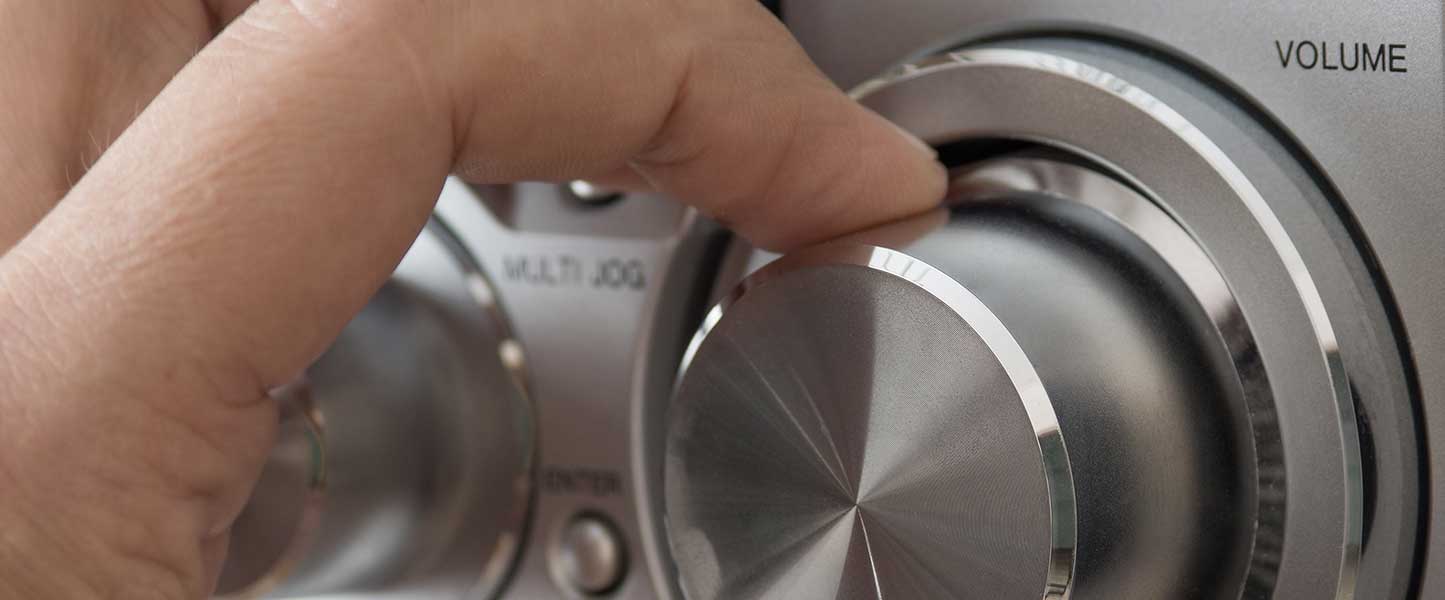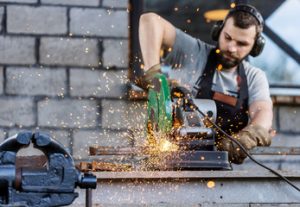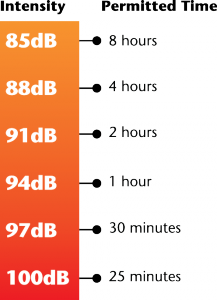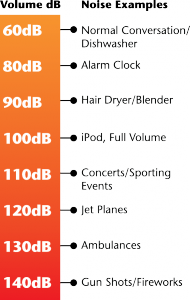Noise-Induced Hearing Loss (NIHL)
During noise exposure there is a cascade of events inside the cochlea damaging both the hair cells and the supporting cells inside the inner ear. The damage is not just due to mechanical damage to the cochlear cells but also chemical processes triggered by noise. Research has identified that this process is ongoing for up to 7 to 10 days following noise exposure. Additionally, a very loud sound can cause acoustic trauma in a single event such as permanent damage to the inner ear, or can damage the ear drum or the middle ear bones.





